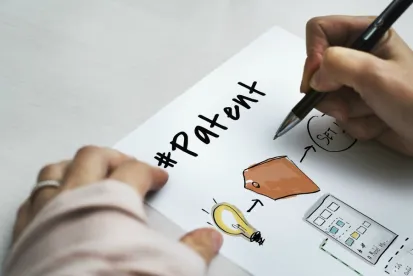The en banc US Court of Appeals for the Federal Circuit held that a dissatisfied patent applicant that chooses to appeal from a decision of the Patent Trial and Appeal Board rejecting claims of a patent application can appeal to the US District Court of the Eastern District of Virginia without fear of being required to pay the prorated salaries of US Patent and Trademark Office (PTO) employees who work on the appeal, regardless of the outcome. NantKwest, Inc. v. Iancu, Case No. 2016-1794 (Fed. Cir. July 27, 2018) (en banc) (Stoll, J, joined by Newman, Lourie, Moore, O’Malley, Wallach and Taranto, JJ) (Prost, CJ, dissenting, joined by Dyk, Reyna and Hughes, JJ).
NantKwest filed a complaint against the director of the PTO in the Eastern District of Virginia pursuant to 35 USC § 145, appealing from the PTO’s rejection of its patent claims. After the district court affirmed the PTO’s decision, the PTO filed a motion for reimbursement of “[a]ll the expenses of the proceedings,” including its attorneys’ fees in the form of the prorated salaries of the PTO personnel who worked on the appeal. Section 145 states that “[a]ll the expenses of the proceedings shall be paid by the applicant.” The district court denied the PTO’s motion for attorneys’ fees because the American Rule provides that each party should pay its own attorneys’ fees. The PTO appealed the denial, and a divided Federal Circuit panel reversed the district court. The Federal Circuit panel held that § 145 was a deviation from the American Rule and attorneys’ fees were included in “[a]ll the expenses of the proceedings” (IP Update, Vol. 20, No. 7). The Federal Circuit next issued a sua sponte order to hear the appeal en banc and vacated the panel decision.
Under § 141, dissatisfied applicants may appeal directly to the Federal Circuit, the most routinely used path for appeal. But applicants also may use § 145 and seek review in the Eastern District of Virginia through the filing of a civil action. In such an action, the parties can conduct discovery and introduce new evidence, including oral evidence that was not presented to the PTO during prosecution. These § 145 actions are resolved under the same methods as traditional district court proceedings, such as motion practice and a trial on the merits. Unlike § 141 appeals, in § 145 proceedings, the applicant must pay “[a]ll the expenses of the proceedings.” Ever since the predecessor statute of § 145 was passed in the mid-1800s, these expenses have included travel, expert and court reporter fees, and document production costs—but never attorneys’ fees.
The en banc Federal Circuit ruled that the American Rule applies and the language of § 145 is not specific and explicit enough to be interpreted as including attorneys’ fees. The en banc Court held that “the American Rule prohibits courts from shifting attorneys’ fees from one party to another absent a ‘specific and explicit’ directive from Congress. The phrase ‘[a]ll the expenses of the proceedings’ falls short of this stringent standard.”
Practice Note: This case may be heading to the Supreme Court of the United States because the decision in NantKwest creates a split between the Fourth Circuit and the Federal Circuit in the interpretation of similar statutes (15 USC § 1071 (b) and 35 USC § 145) as to whether the American Rule applies and what is included in “all the expenses of the proceeding(s)” for appeals to a district court. Compare Shammas v. Focarino, 784 F.3d 219, 223–24 (4th Cir. 2015) with the NantKwest decision.



 />i
/>i

